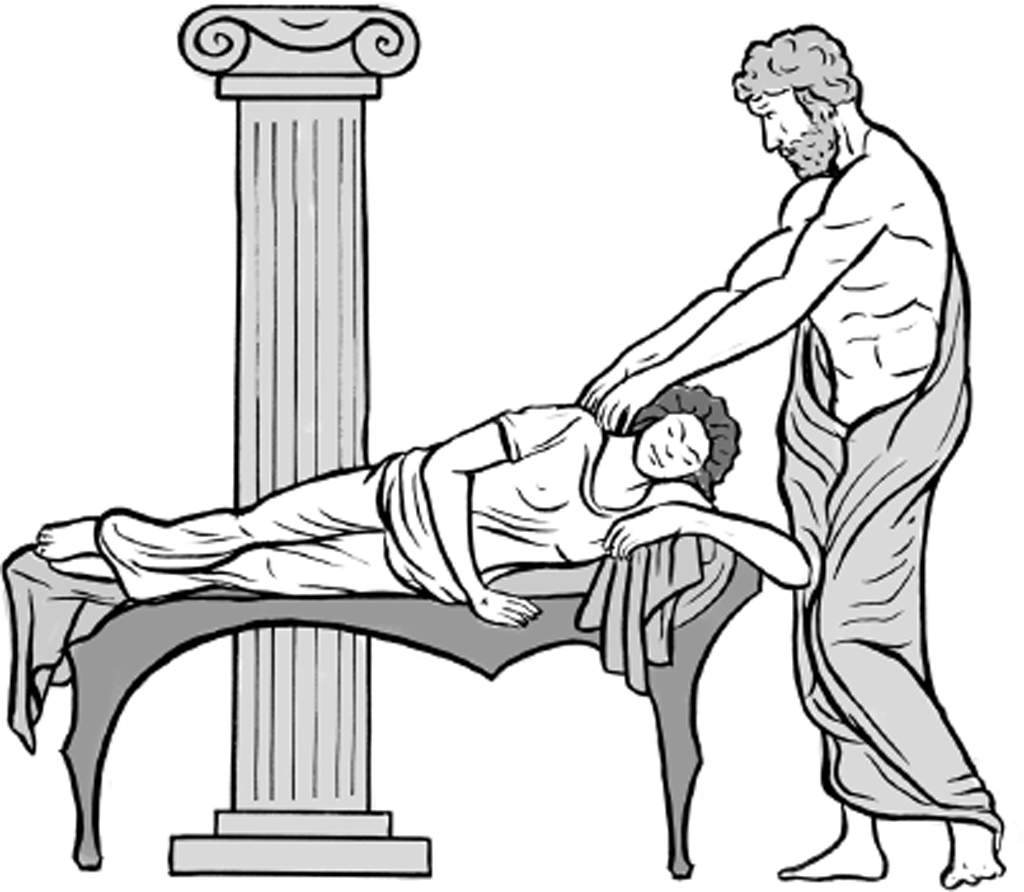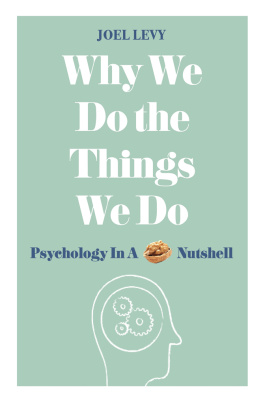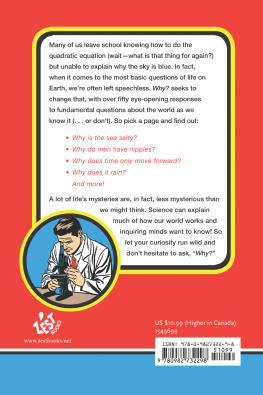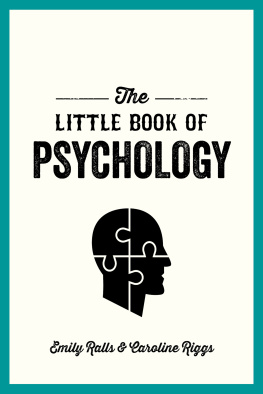By the same author:
Freudian Slips
Why? Answers to Everyday Scientific Questions
To Mike and Christina,
who helped make this book possible.
First published in Great Britain in 2015 by
Michael OMara Books Limited
9 Lion Yard
Tremadoc Road
London SW4 7NQ
Copyright Michael OMara Books Limited 2015
All rights reserved. You may not copy, store, distribute, transmit, reproduce or otherwise make available this publication (or any part of it) in any form, or by any means (electronic, digital, optical, mechanical, photocopying, recording or otherwise), without the prior written permission of the publisher. Any person who does any unauthorized act in relation to this publication may be liable to criminal prosecution and civil claims for damages.
A CIP catalogue record for this book is available from the British Library.
ISBN: 978-1-78243-412-2 in hardback print format
ISBN: 978-1-78243-410-8 in ebook format
Designed and typeset by K.DESIGN, Winscombe, Somerset
www.mombooks.com
Contents
Psychology is the study of the mind. The word itself comes from the Greek root psyche, meaning the mind or soul, and the suffix ology, from the Greek logos, meaning the study of. The term psychology was not coined until around the sixteenth century and only came into popular use in the eighteenth century. In fact, psychology was not practised as an explicitly identified discipline until the late nineteenth century. Its roots, however, can be traced back much further than this.
Folk psychology
All humans are what might be termed folk or nave psychologists, in that everyone considers, interprets and predicts their own and other peoples thoughts and behaviour. The ability to surmise what might be going ). So our everyday psychologizing could be said to lie at the root of what makes us and has made us human.
Body and brain
As a practice in the academic or professional sense, precursors of psychology can be identified in pre-modern and alternative models of the psyche and its relation to the world. In Ancient Greece, for instance, a form of dream therapy was practised 2,500 years before Jung (see for more on this).
Ancient Greek medicine reflected aspects of what today is known as a holistic approach, recognizing the role of the psyche in determining bodily health. Medieval and Early Modern medicine developed from Classical antecedents and reflected this psychological element in theories such as the four humours blood, phlegm, black bile and yellow bile that were said to govern mood and character. Mental illness was likewise primarily viewed as an expression of physiological imbalances.

Contrary to popular belief, demonic possession was not the most common cause to which insanity was attributed. Evidence from records of medieval inquisitions (that is, inquests to determine sanity, aka idiocy) show that there was generally a clear view of madness as having physical, bodily causes, with almost no appeal to supernatural agency. Madness was overwhelmingly perceived as a disorder of the body and brain, points out medieval historian David Roffe (Perceptions of insanity in medieval England, 1998). Where possible, specific causes were attributed for example, in 1309 Bartholemew de Sakeville was said to have become an idiot after developing an acute fever, while in 1349 Robert de Irthlingborough was found to have lost his memory and gone insane after he had been struck on the head by a lance while jousting.
Although this model of the physiological basis of psychology still informed psychiatric thinking and practice into the eighteenth century, humoral theory had begun to fall out of favour from the Renaissance onward. Increased enthusiasm for anatomical dissection, starting with Andreas Vesalius in the sixteenth century, found illness increasingly localized in specific sites of the body, so that lesions or disruptions of specific tissues replaced humoral imbalance as the cause of disease. At the same time there was an increasing emphasis on emotional states as a cause of mental illness in themselves: for example, grief as a cause of melancholy, or terror as a cause of hysteria. Yet even today, terms such as phlegmatic or sanguine are still used to characterize temperament and personality, demonstrating the long reach of the theory of the four humours.
Thus psychology was linked to physiology. In the sixteenth and seventeenth centuries, works such as Montaignes Essays (1580), Robert Burtons The Anatomy of Melancholy (1621) and Shakespeares plays (15901613) saw an increasing emphasis on the inner life of the mind, but there was little separation between psychology and philosophy.
A scientific approach
Our modern conception of psychology arose from movements such as mesmerism and phrenology (see ). Though now recognized as pseudosciences, these approaches did much to advance and legitimize medical and scientific study of the mind. The genesis of psychological science can be traced back to the laboratories of Wilhelm Wundt, who in 1879 opened the Institute for Experimental Psychology at the University of Leipzig in Germany. Wundts background was in medicine, and he was determined to put psychology on a scientific footing, having learnt what is now called psychophysics from his teacher Hermann von Helmholtz. Psychophysics is the study of the response of the nervous system to physical stimuli. Helmholtz investigated topics such as the levels at which luminosity of light or loudness of sound become perceptible, and the speed of transmission of electrical impulses in nerves.
).
James and functionalism
Around the same time as Wundt was working in Germany, the physician, philosopher and psychologist William James was also developing psychology in the United States. His approach stressed the functions (which is to say, purpose and utility) of behaviour and thoughts, and so his school came to be known as functionalism. Perhaps Jamess greatest contribution to psychology was his landmark 1890 textbook The Principles of Psychology, which set out themes of psychology that are still current today, such as brain function, consciousness and the self, perception, instinct, memory and emotion. Later, James somewhat disavowed psychology and his famous book, preferring philosophy, but the definition that he set out in the Principles remains one of the best known:
Psychology is the Science of Mental Life, both of its phenomena and of their conditions... The Phenomena are such things as we call feelings, desires, cognition, reasoning, decisions and the like.
Joel Levy

The psychology of prehistoric peoples is hard to study because it can only be inferred from archeological remains. In terms of psychiatry (the medical treatment of people with mental illness or disorders), the most striking evidence from prehistory comes from skulls that had been drilled with holes. This is known as trepanation or trephination, and the traditional interpretation is that it indicated widespread belief that mental illness was due to bad spirits, which could be released or exorcized by providing a physical outlet; hence the hole. It is equally if not more plausible, however, that trepanation was performed for straightforward and clinically appropriate reasons, such as relieving pressure caused by blows to the head, or removing splinters or blood clots from the same cause.
Next page














